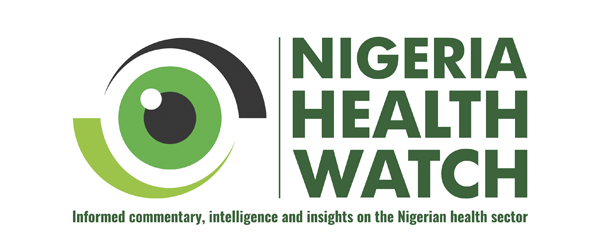
Nigeria Health Watch (NHW) has underscored the necessity of innovative community accountability mechanisms to ensure the delivery of quality primary health care (PHC) services across the country.
This assertion was made by the watch’s director of programmes, Dr. Kemisola Agbaoye during the Primary Healthcare Nutrition Policy Dialogue today (August 14, 2023), in Suleja, Niger State.
The event, titled “Strengthening Primary Healthcare Demand in Nigeria to Improve Community Access to Quality Healthcare,” was organised by NHW and aimed to address and enhance the demand for primary healthcare services in the nation. As Science Nigeria reported, the dialogue sought to emphasise the importance of bolstering the healthcare system’s responsiveness to local communities needs while improving the accessibility and quality of healthcare services.
Agbaoye emphasised that primary health care serves as the initial point of contact with the healthcare system for people, forming a crucial foundation for achieving Universal Health Coverage (UHC) in the country. She expressed concern that not all PHCs in Nigeria meet the standard requirements to offer quality healthcare, thus highlighting the essential nature of PHC accountability.
She went on to illuminate the pressing issues plaguing these PHCs, ultimately jeopardising the provision of quality healthcare to millions of Nigerians. She noted that while the country boasts over 34,000 PHCs, regrettably, only 20 per cent of them are operational.
“Through the National Primary Health Care Development Agency (NPHCDA), the Federal Government has introduced policies to enhance PHCs across the country, aiming to ensure at least one functional PHC per ward in Nigeria. Over the years, Nigeria Health Watch has worked in tandem with the Federal Ministry of Health and the Nigeria Governors Forum to enhance PHC services for all Nigerians. We’ve explored various avenues, such as Policy Dialogue and Community Health Watch, which enable community members to report their experiences accessing PHC services,” she explained.
In the keynote address, the executive director of the Niger State Primary Health Care Development Agency (NSPHCDA), Dr. Ibrahim Dangana emphasised the need to strengthen community accountability mechanisms to ensure quality primary healthcare in the nation. Dangana, represented by Dr. Inuwa Junaidu, highlighted the pivotal role of community accountability in elevating primary healthcare services.
The executive director acknowledged the strides made in PHC indicators but stressed the imperative of further progress to achieve the Sustainable Development Goal of Good Health and Well-being for all by 2030. He noted the significance of innovative platforms like community maternal, perinatal, and child death surveillance review committees in amplifying healthcare workers’ and stakeholders’ voices at the community level.
He praised Niger State’s culture of embracing innovations and underscored the importance of empowering and mobilising communities as active agents of change, advocating for quality services and promoting healthy lifestyles. Dangana concluded by calling for unwavering commitment, collaboration, and determination in building a lasting legacy of accessible, equitable and high-quality primary healthcare in the state.
During a panel discussion on Increasing Community Demand for Quality PHC Services, the coordinator of the Basic Health Care Provision Fund (BHCPF) in Niger State, Mrs. Aisha Ahmed reported that the state was one of three states selected by the Federal Government to pilot the BHCPF’s implementation in the country.
Ahmed noted that since the BHCPF’s implementation, there has been substantial improvement in healthcare facilities, enabling Niger State residents to access quality care. “Through the BHCPF, Niger State has ensured the availability of essential drugs and healthcare personnel. However, our primary challenge lies in retaining skilled workers deployed to communities, ensuring they remain and work within those communities,” she said.
Ahmed highlighted that the Ward Development Committee, which represents community voices, serves as a key group for obtaining health information to enhance service quality. She further highlighted the dire maternal health situation in Niger State, where approximately one in every 95 women faces the risk of dying during pregnancy and childbirth.
The scarcity of skilled midwives, especially in remote and challenging-to-reach areas, has contributed to compromised care quality for pregnant women and newborns. Ahmed referred to insights from the report, Why Are Women Dying While Giving Birth In Nigeria? which attributed maternal deaths in part to the inadequate distribution of healthcare workers within the state.
The majority of health workers prefer urban centres over rural communities, resulting in a significant shortage of midwives where they are most needed. According to findings from a baseline assessment conducted in February 2023 to evaluate state budget allocation for primary health care facilities and the functionality of community maternal and perinatal death surveillance and response (MPDSR) committees, Niger State has committed to recruiting over 500 nurses and midwives through collaborations with the state government, BHCPF, GAVI, the Vaccine Alliance and the Expanded Midwives Service Scheme (eMSS).

